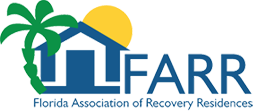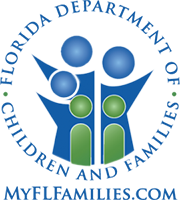The Need for IOP Drug Rehabs in Florida has Never Been Greater
IOP drug rehabs in Florida are in great need due to the opioid crisis and rates of increasing alcoholism in the United States. IOP is an acronym for Intensive Outpatient Program, which is a critical phase of a comprehensive recovery plan. In many cases, its IOP drug rehabs that bridge in-patient / residential recovery with independent sober living. In this article, we will discuss the different phases of drug and alcohol rehabilitation while emphasizing the importance of participating in an Intensive Outpatient Program before or while venturing into independent sober living.
Before proceeding; it should be noted that “phases of recovery” are somewhat subjective and there is really no such thing as one-size-fits-all when it comes to rehab or recovery. Addiction treatment centers have many different names and descriptions for treatment plans and phases of recovery. For purposes of this article we will utilize the following generic terms to mean:
- 1st Phase – opiate and alcohol detox centers
- 2nd Phase – Residential Treatment
- 3rd Phase – Intensive Outpatient Program or IOP drug rehabs
- 4th Phase – Alumni / sober life follow-up
IOP Drug Rehabs in Florida and the 4 Phases of Recovery

IOP drug rehabs in Fort Lauderdale, Florida provide all the services above. Some Like The Source addiction treatment center specialty services like brain mapping and stabilization programs. However, let’s begin with a brief description of the four phases as indicated above. During Phase 1 or opiate and alcohol detox is when the focus is on the physical symptoms of addiction. If an addict must go through withdrawal – as unpleasant as it is – doing so in a qualified detox facility is by far the safest place to do it. If medical assistance or medication is needed, the medical professionals will be able to properly diagnose and prescribe the right dosages. Detox can last anywhere from a few days to a few weeks or even a month depending on the severity of the addiction.
Once an addict or alcoholic is properly detoxed; the next phase is to enter a residential treatment program. Thousands upon thousands of addicted individuals have built strong foundations of sobriety living in residential treatment centers and following their prescribed programs. Most residential treatment programs consist of group and individual therapy sessions along with activities that are designed to diagnose and treat the addiction and its underlying causes. While in residential treatment, clients can be expected to be tested for substances via urine tests several times per week. Residential treatment can last from 30 days to several months depending on each individual’s needs.
The good news is that many residential treatment facilities are also IOP drug rehabs in Florida. Once a person has graduated from a 30+ day program and have had at least 30 consecutive sober days; they can be evaluated for IOP. While attending IOP; a person may continue living in a residential treatment setting. Or they may move into a sober living or half-way house, or they might be able to move back home with their parents or families.
The last phase from treatment centers for drug addiction treatment is the alumni or follow-up phase which can end up being the most important one of all. There are many among us who have repeatedly gone through phases 1 – 3 but choose to skip phase 4 and go it alone… only to experience multiple relapses. Remaining active in an alumni program is not only a great way to stay in contact with sober brothers and sisters; but it also provides an all-important support group. Isolation comes natural to most alcoholics and addicts, so staying in close contact with the people who helped you get sober is equal to recovery common sense!
IOP Provides Support during a Crucial Phase of Recovery
Now that we have defined the phases of recovery, let’s go back and focus on the specifics of IOP and discuss how IOP drug rehabs in Florida can build upon and enforce the principles discovered during residential treatment. In fact; many addiction professionals consider IOP to be a foundational component of a complete recovery program. In an article published in Psychiatric Times it states,
IOPs have proven to be a successful part of a continuous care program.
Psychiatric Times, author Michael Rass
Continuous being the optimum word in describing any program of recovery.
It should be noted that unfortunately, relapses in addiction are frequent occurrences and should not be surprising. Most research also suggests that a comprehensive treatment program exponentially increases the chance for long term sobriety. It makes perfect sense that if a recovering addict continues to seek help after completing a 30+ day residential program their chances of remaining sober are significantly better than someone who does not.
What Happens When Attending IOP drug rehabs in Florida?

If have never attended IOP drug rehabs in Florida and you are reading this article and you are probably curious. Maybe you want to know what specific therapies and activities are conducted during this phase of recovery. Some of the activities may be a continuation of things that were initiated during residential treatment. Both individual and group therapy immediately comes to mind, as these are some of the most important tools of sobriety. Many addicts who have achieved decade’s long sobriety continue to seek individual therapy while attending and participating in 12 step meetings in their own communities.
However; IOP drug rehab presents an opportunity to learn new ways of doing things that may have in the past triggered a relapse. For example; let’s take something as simple as going out to eat. For many an addict or alcoholic, going to a restaurant is synonymous with going out to get drunk! During IOP, one activity may be relearning how to go to a restaurant and order a meal. By doing so and “practicing” with your IOP drug rehab brothers and sisters; you have an opportunity to talk through the urges. It’s essential to discuss the discomforts with folks who understand and are facing the same challenges as you. As simple as this may sound; a non-addict or alcoholic in most cases would not be able to understand what you are going through. Unfortunately, from a realistic perspective, addiction is something that one must experience to fully understand.
Recovering Addicts and Alcoholics Must Learn Acceptance and Embrace Change
One of the most important concepts worked on when attending IOP drug rehabs Florida, is the need for acceptance and the ability to adapt to change. These may sound easy, but for an individual who is dependent on substances to feel “normal,” they are most certainly are not! However; an IOP environment presents the opportunity to share these feelings and openly discuss fears with other people dealing with similar feelings and fears, and the value of this cannot be overstated.
IOP drug rehabs in Florida helps teach recovering addicts and alcoholics how to socialize without getting high. This may seem ridiculous to the layperson, but consider this… a highly addicted individual does NOT know how to socialize without the aid of their drug of choice. A social drinker gets together with friends and may have a few drinks or even smoke a joint. However; there is no such thing as shooting heroin or smoking crack on a social basis.
A Final note on IOP Drug Rehabs in Florida

Throughout this article we have expressed the benefits of attending IOP Drug Rehabs in Florida. We have discussed the four phases of drug and alcohol addiction recovery and the need for building a strong foundation of sobriety. We have also pointed out that one addict can effectively help another in a unique way. this is due to their personal understanding of the disease and the level of empathy made possible only because of that understanding.
One of the most recognized IOP Drug Rehabs in Florida is offered by The Source Treatment Center located in Fort Lauderdale. They have an experienced staff of caring recovery professionals; most of whom are on their own recovery journey, along with an expert medical team. Contact them for more information at (800) 204-0418.
 The Source quite frankly saved my life and got me back on track, never giving giving up on me. When you are thinking about and looking through all of the different places to go for treatment this is the one that should stand out from the rest.
The Source quite frankly saved my life and got me back on track, never giving giving up on me. When you are thinking about and looking through all of the different places to go for treatment this is the one that should stand out from the rest.




























